CML Expert Opinions
iCMLf Expert Opinions
This section provides you with a selection of expert opinions from leaders in the field.
You will find interviews with CML experts providing their personal perspectives on highlights from scientific meetings and latest scientific advancements as well as keynote presentations from iCMLf prize winners. The topics featured cover a broad range of issues from CML science to clinical practice.
Keynote presentations from the recipients of the 2025 iCMLf Prizes
The 2025 iCMLf prize winners have been awarded their prizes during the ESH-iCMLf 27th Annual John Goldman Conference on CML: Biology and Therapy in Estoril. After the award ceremony, they shared insights into their scientific and clinical work for CML over the past years during keynote presentations. You can view recordings of the Rowley Prize, the Goldman Prize and the iCMLf Prize acceptance speeches here.
 |
|
2025 ELN recommendations on the management of CML
Professor Jane Apperley
Imperial College, London (UK)
Background:
The European LeukemiaNet (ELN) has issued expert consensus recommendations for managing CML since 2006, with updates in 2009, 2013, and 2020. The 2025 version, recently accepted for publication in Leukemia, reflects evolving clinical data, new therapies, and a growing emphasis on individualised care.
Click here to access the full publication
Keynote presentations from the recipients of the 2024 iCMLf Prizes
The 2024 iCMLf prize winners have been awarded their prizes during the ESH-iCMLf 26th John Goldman Conference on CML: Biology and Therapy in Prague. After the award ceremony, they shared insights into their scientific and clinical work for CML over the past years during keynote presentations. You can view recordings of the Rowley Prize, the Goldman Prize and the iCMLf Prize acceptance speeches here.
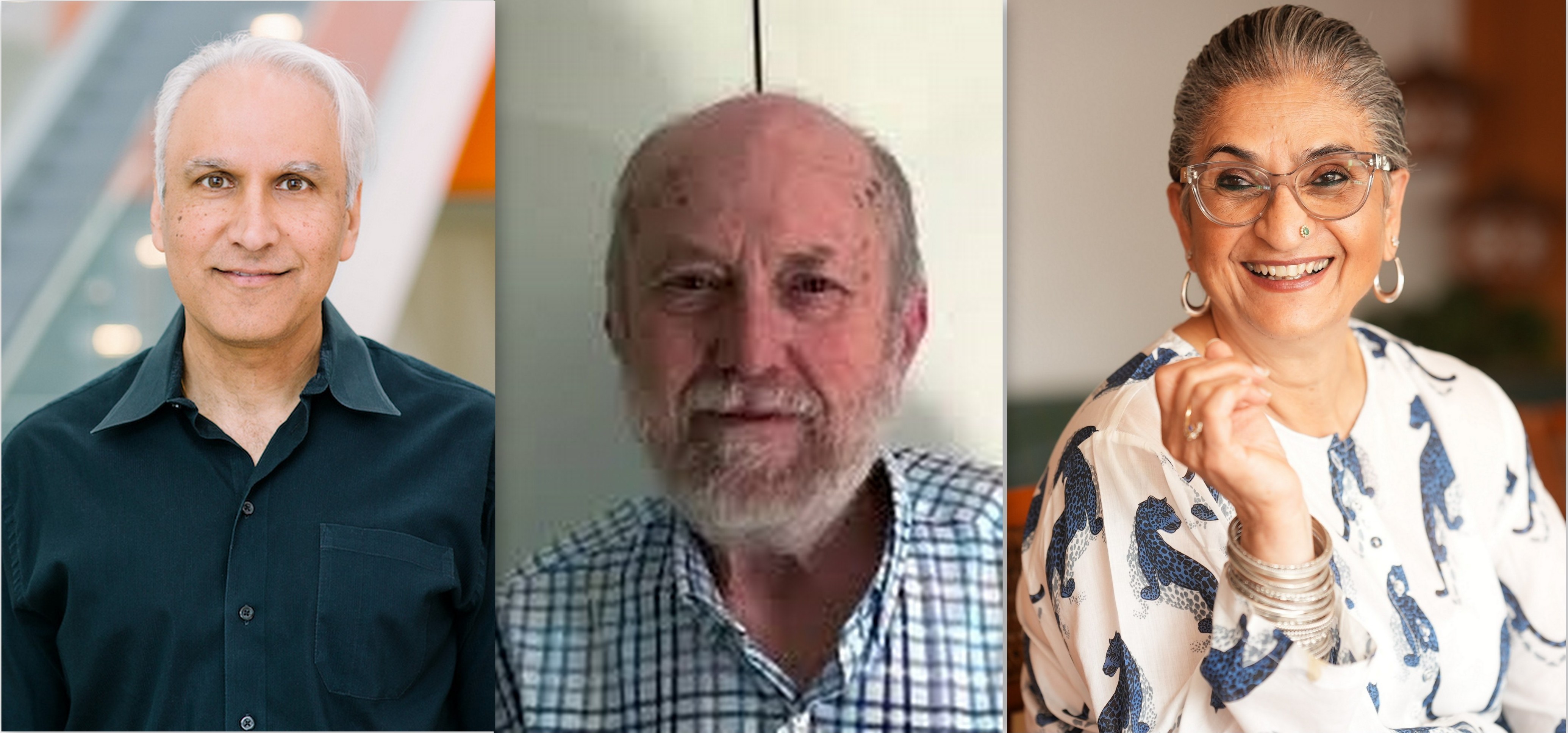 |
|
Keynote presentations from the recipients of the 2023 iCMLf Prizes
The 2023 iCMLf prize winners have been awarded their prizes during the 25th John Goldman Conference on CML: Biology and Therapy in Mandelieu (France). After the award ceremony, they shared insights into their scientific and clinical work for CML over the past years during keynote presentations. You can view recordings of the Rowley Prize, the Goldman Prize and the iCMLf Prize keynote presentations here.
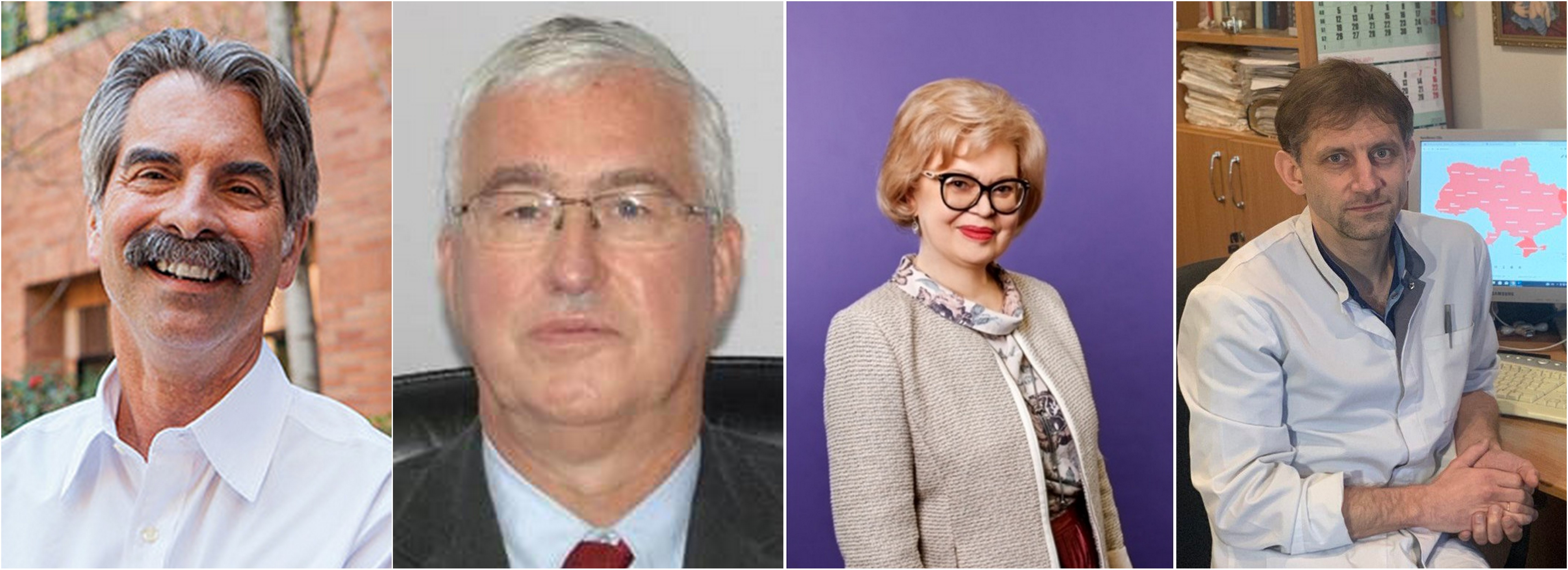 |
|
ICMLf Genomics Alliance -
Goals and accomplishments through a global collaboration
Professor Susan Branford
Centre for Cancer Biology & SA Pathology, Adelaide, Australia
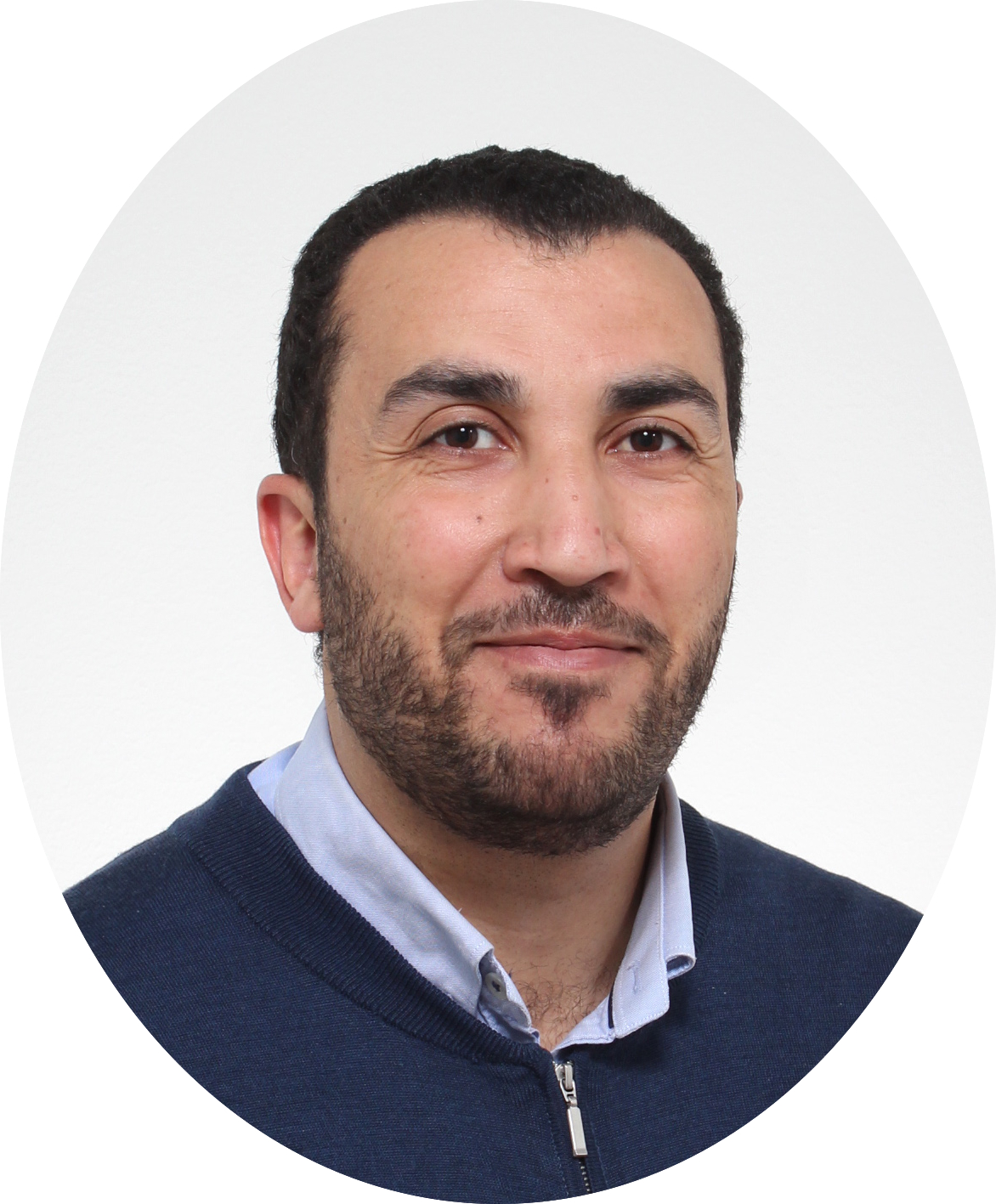 |
Non-BCR-ABL1 molecular biomarkers of prognosis in CML
|
This talk was first presented during the Scientific Working Group Session – ELN-EHA-SWG for CML: 'Understanding the pathogenesis of CML' at EHA 2022
Keynote presentations from the recipients of the 2022 iCMLf Prizes
The 2022 iCMLf prize winners have been awarded their prizes during the 24th John Goldman Conference on CML in Mandelieu (France). After the award ceremony, they shared insights into their scientific and clinical work for CML over the past years during keynote presentations. You can view recordings of the Rowley Prize, the Goldman Prize and the iCMLf Prize keynote presentations here.
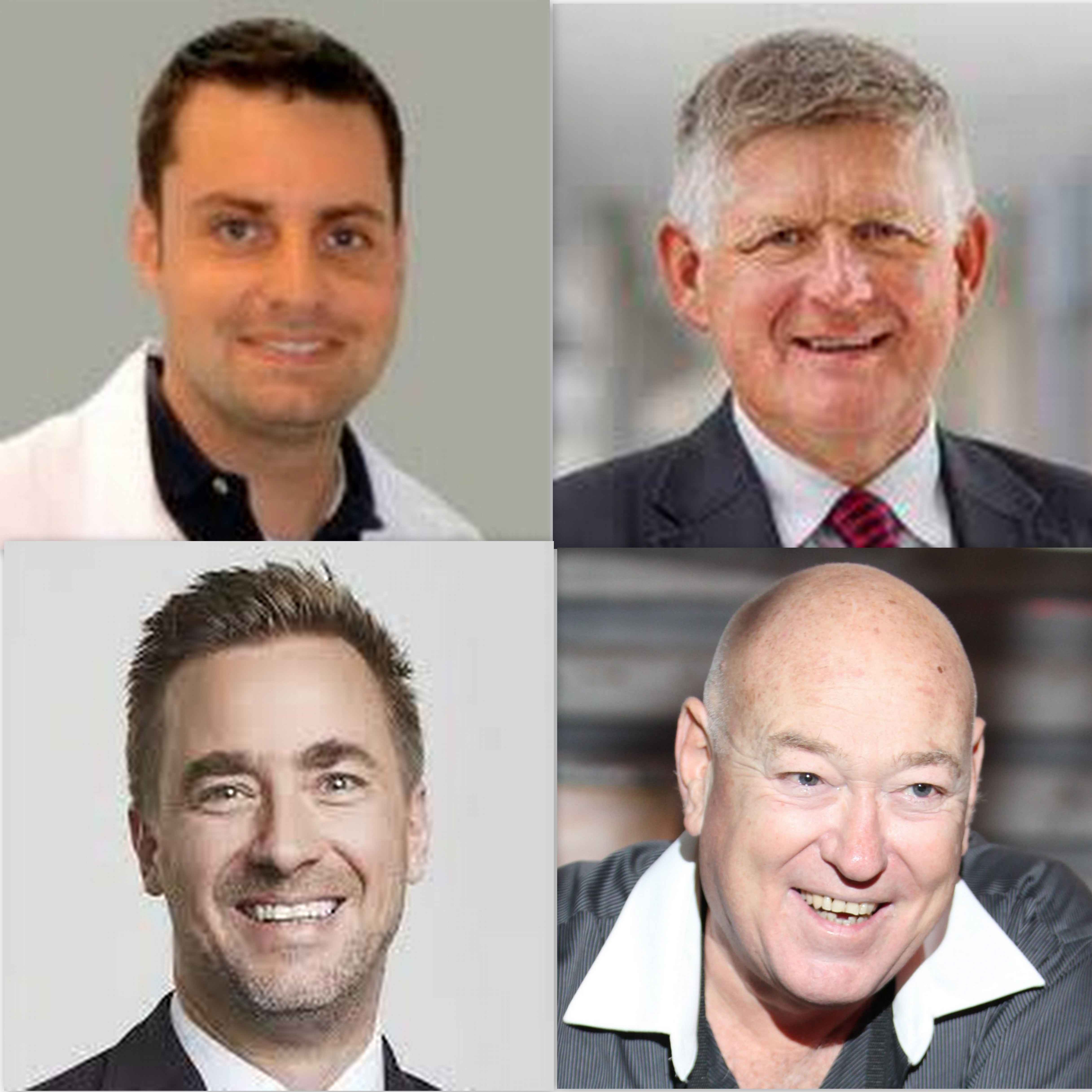 |
|
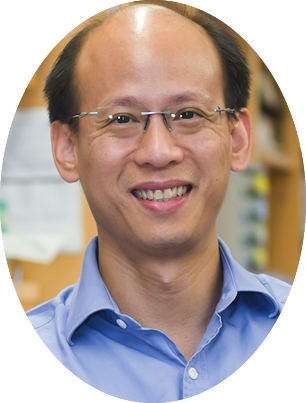 |
Mechanisms of disease progression in chronic myeloid leukemia Learning goals:
|
This talk was first presented during the Scientific Working Group Session – ELN-EHA-SWG for CML: 'Understanding the pathogenesis of CML' at EHA 2022
Keynote presentations from the recipients of the 2021 iCMLf Prizes
The 2021 iCMLf prize winners have been awarded their prizes during the 23nd John Goldman E-Conference on CML. After the award ceremony, they shared insights into their scientific and clinical work for CML over the past years during keynote presentations. You can view recordings of the Rowley Prize, the Goldman Prize and the iCMLf Prize keynote presentations here.
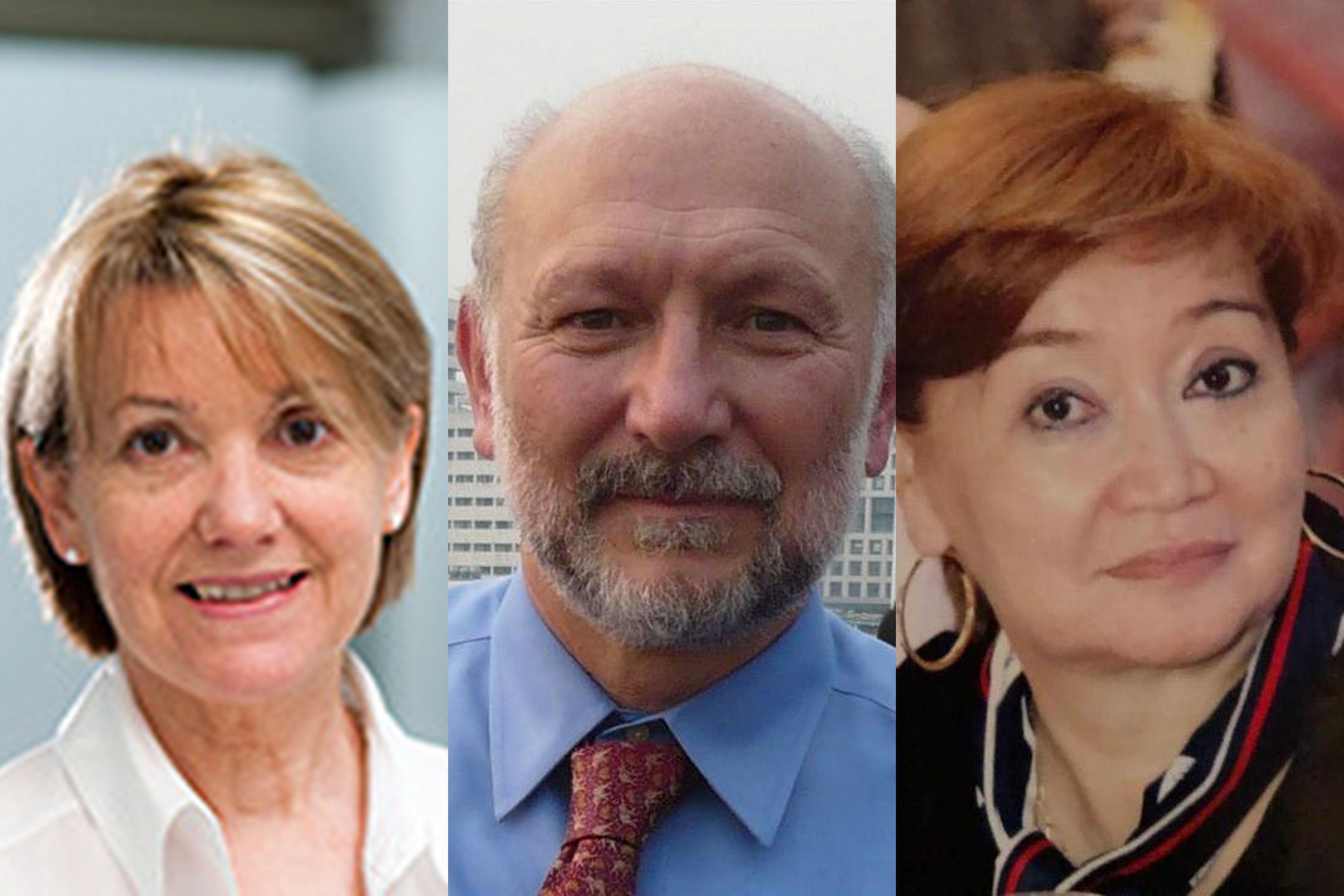 |
|
Keynote presentations from the recipients of the 2020 iCMLf Prizes
At the 22nd John Goldman E-Conference on CML the 2020 iCMLf prize winners have been awarded their prizes. During keynote presentations the prize recipients shared personal perspectives on their scientific and clinical work for CML over the past years. You can view web streams of the Rowley Prize, the Goldman Prize and the iCMLf Prize keynote presentations here.
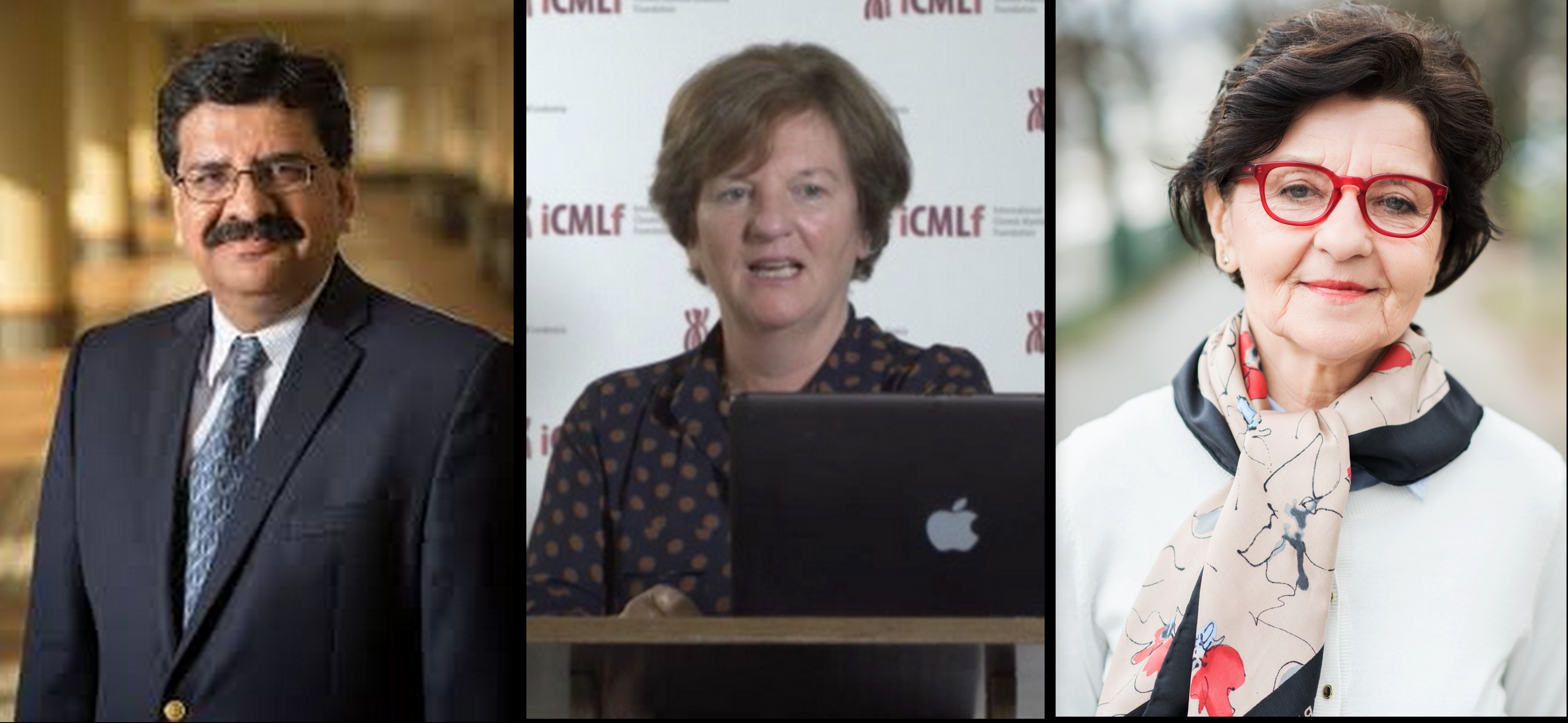 |
|
Highlights from ASH 2016:
3 CML experts give their personal perspectives
This independent educational resource is supported by a grant from Novartis Oncology
Perspectives on molecular monitoring in CML from
Associate Professor Susan Branford, PhD
Center for Cancer Biology
SA Pathology, Adelaide, Australia
- Treatment-free remission studies including an update of the EURO-SKI trial
- New data on optimal timing for monitoring patients after stopping therapy
- Additional chromosomal abnormalities and their impact on prognosis
- Next generation sequencing technologies
Perspectives from Professor Jorge Cortes, MD
MD Anderson Cancer Center
University of Texas, Houston, USA
- Different aspects on treatment discontinuation including 2nd treatment discontinuation and QoL assessment
- Presentation of a new tyrosine kinase inhibitor
- Generics making it into practice
- Predictive markers and their impact on patients outcome
- Considerations for treatment discontinuation in clinical practice including AE management
Perspectives on QoL assessment in CML patients from Dr Fabio Efficace, PhD
Fondazione GIMEMA, Rome, Italy
Northwestern University, Feinberg School of Medicine, Chicago, USA
- Importance of QoL assessment in CML
- Correlation between QoL and adherence to therapy
- Update on QoL data from the ENEST trials
- Overview of measuring instruments to assess QoL and the importance of patient-related QoL measures
Clinical Care Options (CCO)
Clinical Care Options (CCO) provides interactive online and live CME-certified continuing medical education (CME) programs and proprietary medical education technologies for healthcare professionals. Click here for information on CCO:
We are pleased to share their recent CML modules below:
- Biosimilars in Oncology: Insights into the development and evaluation process
(Source: Understanding the expanding role of biosimilars in quality cancer care,
June 2017) - Ways to help patients accept biosimilars in oncology practice
(by Sanjiv S. Agarwala, May 2017) - Chronic Myloid Leukemia:
Managing Patients after failure of TKI therapy
(by Elias Jabbour, October 2016) - A CML Patient with Elevated BCR-ABL at 3 month:
To switch or not to switch?
(by Elias Jabbour, April 2015) - Providing Optimal Care for Patients with Chronic Myeloid Leukemia
(by B. Douglas Smith, July 2014) - Chronic Myeloid Leukemia: Translating State-of-the-Art Practice to Patient care
(by Jerald Radich & Neil P. Shah, May 2014)
Further Expert opinions
We are pleased to share additional expert opinions on various CML related topics with you here:
- Diagnosis and Monitoring Response in CML
(by Professor Timothy Hughes, July 2012) - CML - A short history of treatment since the mid 20th century
(by Professor John Goldman, April 2012) - Chronic Myeloid Leukemia - a perspective from India
(by Professor Hemant Malhotra, July 2010) - CML – Reversing the chronic phase
(by Professor John Goldman, January 2010) - International Standardisation for BCR-ABL RQ-PCR in CML
(by Dr Susan Bradford / Dr Nick Cross, August 2009) - Hematopoetic Stem Cell Transplantation in CML
(by Professor Alois Gratwohl, June 2009) - GIPAP, historical perspective and current objectives
(by Pat Garcia-Gonzalez, June 2009)










